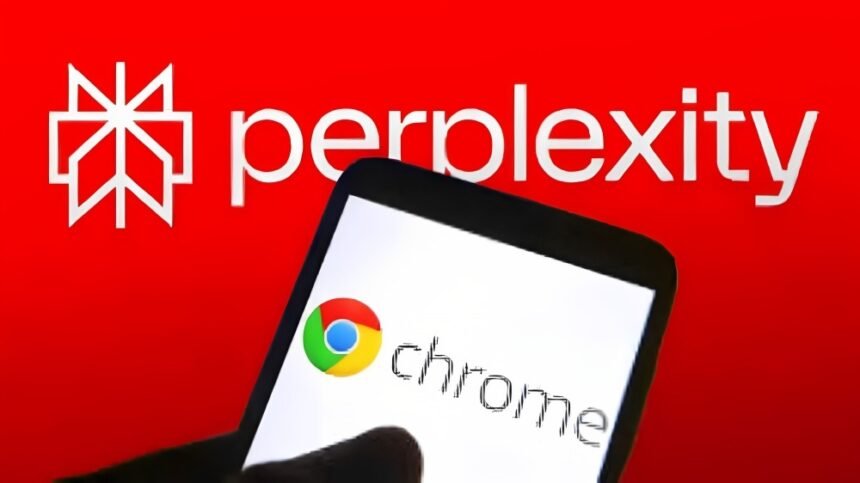Perplexity The AI startup
Perplexity the AI startup, has ignited a firestorm in tech circles with its Perplexity-first opening salvo a jaw-dropping $34.5 billion all-cash bid to acquire Google’s Chrome browser. It’s a bold move by a relatively young AI startup aiming to shake up the browser and search landscape, but is the ambition matched by feasibility?
Three-year-old Perplexity the AI startup is far from a household name compared to the giant Google, yet its audacious offer sends a powerful signal: it wants to supercharge its growth through Chrome’s enormous installed base. Chrome today boasts over three billion users worldwide an unmatched gateway to the web and a coveted asset in the hands of any ambitious AI player.
The Bold Offer and Strategy
In a non-binding term sheet, Perplexity the AI startup has proposed all cash no equity offering $34.5 billion, a figure that far tops its own valuation, pegged between $14 billion and $18 billion The startup claims several undisclosed investment funds stand ready to finance the deal in full.
Moreover, Perplexity pledges to preserve the open-source foundations of Chrome (Chromium), invest an additional $3 billion over two years into support and development, and uphold the browser’s current default search engine.
This isn’t Perplexity’s first splash early in 2025, it offered to merge with TikTok US to address regulatory concerns so playing big to elevate its profile seems part of its growth choreography.
Market Context and Antitrust Dynamics
Google faces mounting antitrust pressure in the U.S. A federal court declared last year that Google holds an illegal monopoly in search. As part of potential remedies, the Department of Justice has floated the idea of forcing Chrome’s divestiture.
While Google has vowed to fight on appeal, legal analysts warn any court-ordered sale could stretch on through the courts for years. Amid that uncertainty, Perplexity wants to position itself early. As The Economic Times notes, the bid could drastically boost Perplexity’s standing in the AI search race by leveraging Chrome’s massive user base.
Motive or Marketing?
Not everyone sees this as a realistic takeover. Fast Company suggests the move may be more about optics than strategy Perplexity might aim to cast itself as a serious contender in the AI-browser arena, rather than an acquirer.
Still, Perplexity the AI startup has been preparing for the moment. Earlier this year, its Chief Business Officer testified in court that the company would be ready to take over Chrome if required by antitrust rulings. Plus, Perplexity recently launched Comet, an AI-powered web browser that integrates search, summaries, task automation, and more into one agentic experience. It’s currently available to high-tier subscribers and emphasizes privacy and local data storage. It’s a clear play toward redefining what a browser can be in the age of AI something Perplexity calls a “cognitive operating system.”
Risks, Realities, and What Comes Next
Despite the headlines, several hurdles remain. Google has neither offered Chrome for sale nor shown any inclination to consider it. Analysts believe the legal battle will be long and that Google rarely relinquishes control of such a linchpin asset.
Also worth noting: Perplexity’s own valuation and funding capacity may struggle to support a deal of this magnitude without significant external backing. It’s banking on unnamed investors and the narrative value of such a bold proclamation.
Unless Judge Amit Mehta mandates a divestiture, the bid may remain largely theoretical. Google plans to appeal the antitrust verdict, so any forced sale might be deferred for years potentially through the Supreme Court.
What This Means for the Market
At its core, the Perplexity proposal is less about immediate acquisition and more about staking a claim in the AI-browser race. It underscores a moment of transition, where browsers are becoming more than portals they’re turning into intelligent assistants. Perplexity’s Comet is proof of concept, while the bid for Chrome is strategic posturing in a game dominated by scale, regulation, and user data.
Whether this bold bid leads to a courtroom showdown or fades as a publicity coup, it signals where the future of internet navigation may be headed: more AI, more agency, and more high-stakes drama.




